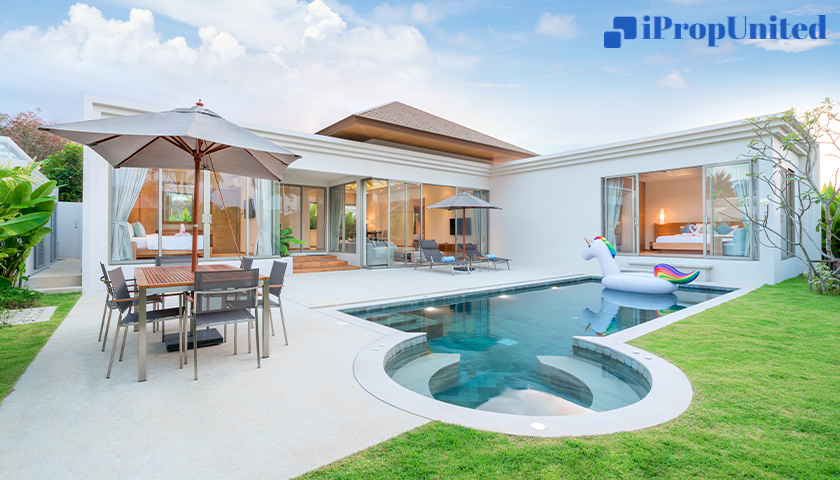The luxury housing sector in India is currently witnessing an extraordinary upswing, with real estate developers seizing the opportunity to maximize profits amidst escalating demand. Experts have attributed the developers’ higher realizations (price per square foot) to the prevailing preference for more spacious and premium homes. It has been noted that the majority of buyers are individuals seeking to upgrade to larger apartments, reflecting their aspirations for an enhanced living experience.

According to a recent report by Anarock, the inventory of unsold luxury units, priced above Rs 2.5 crore, has dropped by a substantial 24 percent, totaling 15,520 units as of March, compared to 20,480 units during the same period the previous year. This indicates a significant decrease in unsold stock from around 23,130 units in March 2019.
Crisil, a prominent rating company, conducted a study that revealed a remarkable surge in sales by large listed real estate developers. In terms of value, sales rose by nearly 50 percent in FY23, accompanied by a 20 percent increase in the area sold. As a result, these prominent developers are projected to expand their market share to approximately 30 percent in FY24, compared to their previous share of 16-17 percent in FY20.
Pranav Shandil, Associate Director at Crisil Ratings, emphasized that the credit risk profiles of major developers have significantly improved due to the liquidation of inventory and substantial sales growth in the past two fiscal years. Consequently, their debt burden has considerably reduced, leading to a substantial enhancement in leverage. It is anticipated that the debt-to-total assets ratio will reach approximately 20 percent by March 2024, down from around 45 percent at the onset of the pandemic.
Crisil’s study encompassed 11 large and listed developers as well as 76 small and mid-sized residential developers, representing 35 percent of the country’s residential sales. The research covered six key regions/cities, namely the Mumbai Metropolitan Region (MMR), National Capital Region (NCR), Bengaluru, Pune, Kolkata, and Hyderabad.
Aniket Dani, Director of Crisil Market Intelligence and Analytics, highlighted the shift in consumer preferences toward larger configurations in premium housing projects, which has been influenced by the hybrid work culture that emerged after the pandemic. Dani further noted that established developers have gradually aligned their new launches with premium projects in line with this trend.
Pankaj Kapoor from Liases Foras pointed out that among the 63 listed real estate companies, five to ten top-tier firms may venture into luxury projects due to the attractive profit margins they offer. Kapoor stated that the luxury housing market has witnessed significant evolution over time, with a robust uptake in the segment. Vivek Rathi, Director of Research at Knight Frank, attributed the surging demand for luxury homes to the interplay between real estate developers and buyer preferences. The renewed interest in homeownership has played a significant role, enabling developers to ensure both volume and price growth within this segment.
Santhosh Kumar, Vice Chairman at Anarock Group, emphasized that luxury home supply is predominantly influenced by developers’ response to demand. He noted that this trend has gained substantial traction due to the renewed interest in home ownership. While mid-range and affordable housing segments are performing well, the sales velocity of high-end offerings in the top seven cities has notably outpaced them.
Ritesh Mehta, Senior Director at Jones Lang LaSalle, explained that luxury projects in South Mumbai primarily arise from the redevelopment of existing societies. In these cases, members prefer to collaborate with listed real estate firms due to the high capital requirements and the need for strong financial backing. Moreover, most units in luxury projects are sold closer to their completion, necessitating a robust holding capacity. Mehta emphasized that only listed developers with low borrowing rates possess the capability to undertake such projects. Additionally, he highlighted the significant difference in profit margins, with conventional projects commanding around 18 percent margin, while premium projects enjoy a higher margin of 28 to 30 percent.
ICICI Securities reported that Oberoi Realty achieved sales bookings worth Rs 670 crore in the fourth quarter, with the 360 West Worli project contributing Rs 230 crore. The company recently acquired 50 percent of the residual inventory in the 360 West projects, previously held by Oasis Realty, for Rs 3,400 crore, consolidating its revenue and EBITDA. ICICI Securities projected a total sale value of Rs 70.3 billion over FY24-FY27, with a post-tax NPV of Rs 41.3 billion for Oberoi Realty.
In line with expectations, DLF achieved record bookings of Rs 15,100 crore in FY23, driven by the phenomenal response to the Arbour residential project in Gurugram, which contributed Rs 8,000 crore. Capitalizing on its strong performance, DLF has expanded its launch pipeline to 41 million square feet, up from the initial 35 million square feet, and anticipates bookings of Rs 11,000 crore to Rs 12,000 crore in FY24. A significant factor contributing to this projection is the launch of the Crest 2 luxury project, which covers 3.5 million square feet in the second half of FY24, and has an estimated sales value exceeding Rs 10,000 crore.
During an investors’ call, Macrotech Developers, formerly known as Lodha Developers, announced that its Malabar luxury project surpassed Rs 1,000 crore in sales.
Boman Irani, representing the Rustomjee Group, revealed plans to launch seven projects, including two in the luxury segment with price brackets exceeding Rs 10 crore. Notably, the company had acquired a sea-facing bungalow near Taj Land’s End Mumbai for Rs 350 crore, and a luxury residential tower is slated to be constructed on this prime plot.
The prevailing trend in India’s luxury housing market indicates a notable shift in buyer preferences and a surge in demand. With renowned developers capitalizing on this opportunity and undertaking premium projects, the market is witnessing remarkable growth and an increase in sales and profits. As the economy continues to recover, the luxury housing segment is expected to maintain its momentum and contribute significantly to the overall real estate sector in India.
Follow and Connect with us: Twitter, Facebook, Linkedin, Instagram







